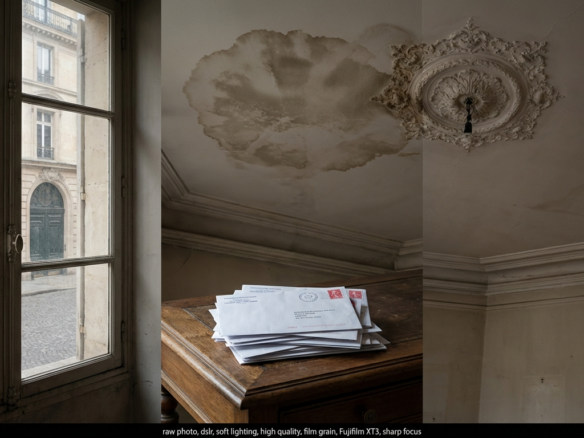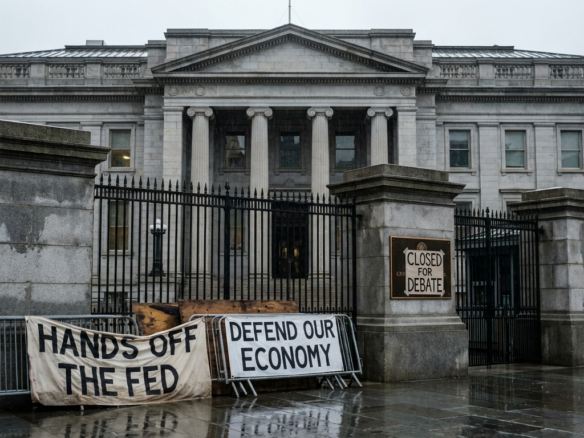Spain’s Empty Homes: A Half-Million Mystery and What It Means for Property Buyers
Spain’s property market presents a fascinating paradox that has caught the attention of investors and homebuyers across Europe. While housing demand continues to rise in major cities like Madrid, Barcelona, and Valencia, approximately half a million homes sit empty throughout the country. This puzzling situation creates both challenges and opportunities for those looking to invest in Spanish real estate. Understanding why these properties remain vacant is crucial for anyone considering purchasing property in Spain, whether you’re a first-time buyer dreaming of a Mediterranean lifestyle or an experienced investor seeking your next opportunity. The empty housing phenomenon reflects deeper issues within Spain’s property market, from legal complications to economic factors that have shaped the current landscape. For buyers exploring options through platforms like European.realestate, this situation offers unique insights into the Spanish market’s complexities and potential.
Get 50% OFF!
Subscribe to our newsletter and enjoy a 50% discount on all listing packages, no strings attached!

Spain’s Empty Homes: A Half-Million Mystery
The statistics are striking. Spain currently has around 500,000 empty residential properties scattered across its territory, representing a significant portion of the country’s housing stock. These aren’t just abandoned rural farmhouses or dilapidated buildings in forgotten villages. Many of these vacant properties are located in urban areas where housing shortages are causing rental prices to skyrocket. The concentration of empty homes is particularly notable in cities experiencing housing crises, creating a situation that frustrates both potential buyers and local authorities trying to address accommodation shortages.
Several factors contribute to this unusual market condition. Many properties are held by banks following the 2008 financial crisis, when massive foreclosures left financial institutions with extensive real estate portfolios they’ve been slow to liquidate. Additionally, inheritance laws and family disputes often result in properties remaining empty for years while legal matters are resolved. Some owners simply hold onto properties as long-term investments, waiting for market conditions to improve before selling or renting. The Spanish property tax system, while including penalties for empty homes in some regions, hasn’t been aggressive enough to force owners into action. Understanding these underlying causes is essential for buyers navigating the Spanish market through European.realestate or other platforms.
Investment Opportunities in Vacant Properties
For savvy property buyers, Spain’s empty housing stock represents a potential goldmine of opportunities. These vacant properties often come with reduced price tags, especially when banks or motivated sellers are eager to offload assets that generate no income while incurring maintenance costs and taxes. First-time buyers can find surprisingly affordable options in desirable locations, while experienced investors might identify properties suitable for renovation and rental income generation. The key is knowing where to look and how to identify genuine bargains from problem properties.
The vacation rental market presents particularly attractive possibilities for vacant property investments. Spain remains one of Europe’s top tourist destinations, with millions of visitors annually seeking authentic accommodation experiences. Purchasing an empty property in coastal areas, historic city centers, or popular tourist regions could yield substantial rental income through platforms catering to short-term stays. However, buyers must navigate local regulations carefully, as many Spanish municipalities have implemented strict rules governing tourist rentals. Working with knowledgeable real estate professionals who understand both the opportunities and restrictions is crucial. Platforms like European.realestate can connect buyers with properties across Spain while providing access to local expertise that helps navigate these complex considerations.
Legal Barriers Keeping Spanish Homes Unoccupied
Spain’s legal framework creates several obstacles that contribute to properties remaining empty. The country’s tenant protection laws are among the strongest in Europe, which paradoxically discourages some property owners from renting. Once a tenant is in place, eviction processes can take years if rental payments stop, leaving landlords with non-paying occupants and no legal recourse for extended periods. This reality makes some owners, particularly those who inherited properties or own them as secondary investments, reluctant to enter the rental market at all.
Inheritance complications further compound the problem. Spanish succession law can be complex, especially when multiple heirs are involved or when properties pass through several generations. Disagreements among family members about whether to sell, rent, or maintain properties often result in legal stalemates that leave homes empty for years. Additionally, some properties carry legal encumbrances, unpaid debts, or unclear title situations that prevent their sale or occupation. The bureaucratic processes required to resolve these issues can be lengthy and expensive, deterring potential action. For international buyers exploring Spanish properties through European.realestate, conducting thorough legal due diligence is absolutely essential to avoid purchasing properties with hidden legal complications.
What This Means for European Property Buyers
The vacant property situation in Spain offers important lessons for anyone considering real estate investments across Europe. Different countries handle housing policy, tenant rights, and property taxation in vastly different ways, creating unique market conditions in each location. Spain’s experience demonstrates how well-intentioned tenant protections can create unintended consequences that actually reduce housing availability. Buyers should research comparable situations in other European markets to understand local dynamics before committing to purchases.
For those specifically interested in Spanish property, the current situation presents a mixed outlook. On one hand, the availability of empty properties creates negotiating leverage and potential bargains. Motivated sellers, particularly banks holding non-performing assets, may accept offers below market value to clear inventory. On the other hand, buyers must exercise caution to avoid properties with legal complications, structural issues, or locations with limited rental or resale potential. The Spanish government and regional authorities are increasingly focused on mobilizing empty housing stock through tax incentives and penalties, which could shift market dynamics in coming years. Staying informed about policy changes is crucial for making sound investment decisions.
Practical Tips for Buying Vacant Spanish Properties
When considering vacant properties in Spain, follow these essential steps:
- Conduct comprehensive legal checks through a qualified Spanish property lawyer (abogado)
- Verify the property’s legal status including any debts, liens, or inheritance disputes
- Inspect thoroughly for structural issues, as empty properties often suffer from neglect
- Research local rental regulations if planning to generate income from the property
- Calculate total costs including purchase price, renovation needs, taxes, and ongoing expenses
- Understand the neighborhood and future development plans that might affect property values
- Work with reputable platforms like European.realestate that provide verified listings and local expertise
- Consider currency exchange implications if buying from outside the Eurozone
- Investigate financing options as mortgage availability varies for foreign buyers
- Plan for property management if you won’t be residing in Spain full-time
Comparing Spanish Property Regulations Across Regions
| Region | Empty Property Tax | Tourist Rental Restrictions | Tenant Protection Level |
|---|---|---|---|
| Catalonia | Yes, up to 3% of property value | Strict licensing required | Very High |
| Andalusia | Limited implementation | Moderate restrictions | High |
| Valencia | Yes, penalties apply | Licensing required in cities | High |
| Madrid | Under consideration | Moderate restrictions | High |
| Balearic Islands | Yes, significant penalties | Very strict limitations | Very High |
Understanding Market Variations
Spain’s property market isn’t uniform across the country. Coastal areas popular with tourists and foreign residents typically maintain stronger property values and rental demand compared to inland rural regions. Cities like Barcelona, Madrid, Valencia, and Málaga have competitive markets with higher prices but also greater liquidity. Meanwhile, smaller cities and rural areas may offer extremely affordable properties but with limited rental potential and slower appreciation. The empty property phenomenon affects these markets differently, with urban vacant homes often representing better investment opportunities than abandoned rural properties.
Regional economic conditions also play a crucial role. Areas with growing employment opportunities, good infrastructure, and quality of life amenities attract both residents and investors, reducing the likelihood of properties remaining empty long-term. Conversely, regions experiencing population decline or economic stagnation may see increasing vacancy rates. Buyers using European.realestate should analyze local economic indicators, population trends, and development plans when evaluating properties in different Spanish regions.
Frequently Asked Questions
Why are there so many empty homes in Spain despite housing shortages?
The paradox stems from multiple factors including strong tenant protection laws that discourage renting, inheritance disputes that prevent sales, bank-owned properties held as assets, and owners waiting for better market conditions. Legal complications and bureaucratic processes also keep properties off the market.
Can foreign buyers purchase vacant properties in Spain?
Yes, foreign buyers face no restrictions on purchasing Spanish property. However, they should conduct thorough legal due diligence, work with qualified legal professionals, and understand tax implications in both Spain and their home country.
Are vacant properties in Spain good investments?
They can be, particularly if purchased below market value in areas with strong rental or tourism demand. However, buyers must carefully assess legal status, renovation needs, local regulations, and long-term market potential before purchasing.
What are the risks of buying empty Spanish properties?
Key risks include hidden legal issues, structural problems from neglect, unclear ownership, outstanding debts attached to the property, restrictive rental regulations, and purchasing in areas with declining demand.
How can I find vacant properties for sale in Spain?
Work with reputable platforms like European.realestate, contact Spanish banks with real estate portfolios, engage local property agents, and explore government programs aimed at mobilizing empty housing stock.
Spain’s half-million empty homes represent both a challenge for policymakers and an opportunity for informed property buyers. While the situation reflects complex legal, economic, and social factors, it has created a unique market dynamic that savvy investors can navigate successfully. Whether you’re a first-time buyer seeking an affordable entry into European property ownership or an experienced investor looking for undervalued assets, understanding the reasons behind Spain’s vacant properties is crucial for making sound decisions. The key lies in thorough research, professional legal guidance, and realistic assessment of both opportunities and risks. As European property markets continue to evolve, platforms like European.realestate provide valuable resources for connecting buyers with properties across the continent while offering the local expertise necessary for successful transactions. Spain’s property market, despite its complexities, remains attractive for those willing to do their homework and approach purchases with eyes wide open to both the possibilities and potential pitfalls.





Join The Discussion